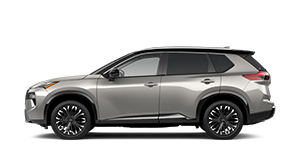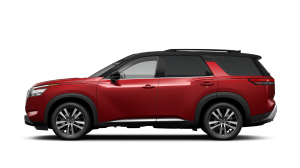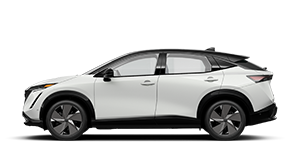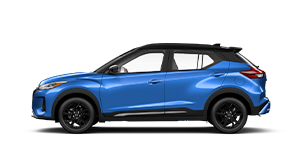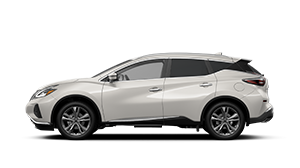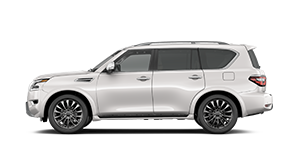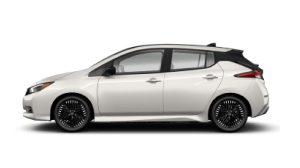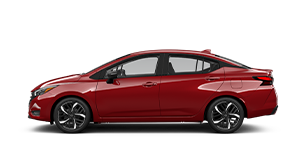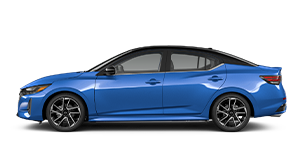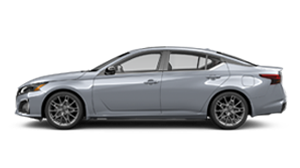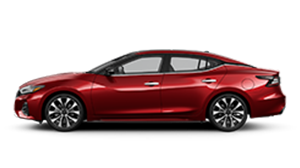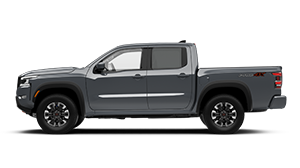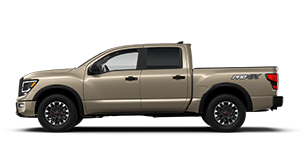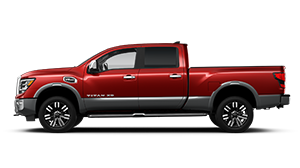Start your online purchase at participating Nissan dealers. Get a quote, book a test drive and even buy your Nissan from home. [[3355]]
Knowing the upfront cost of a vehicle is straight forward—but what is the total cost of owning a vehicle? Before buying or leasing, it is important to consider ongoing costs such as insurance, fuel, maintenance, and fees.

How to calculate the total cost of car ownership
The average annual cost of vehicle ownership depends on several key factors. Upfront costs such as vehicle MSRP and registration fees are usually accounted for.
However, when considering your budget, it is important to also include ongoing costs such as insurance, maintenance, and running costs such as fuel. These additional cost factors should be accounted for when budgeting for a vehicle purchase.[[3370]]
Calculating cost of ownership requires including the purchase price of a vehicle and the operating cost of the vehicle. Planning for long-term cost of ownership allows for more predictability in your budget.[[3370]]
Looking to get started on determining your overall cost of ownership? Use the Nissan Payment Calculator tool to estimate the monthly upfront costs to lease or finance of your Nissan vehicle. Then think about what your current or possible monthly costs are for ongoing costs and you'll give yourself an idea of what your monthly budget should be.[[3370]]
6 car ownership considerations
Your total ownership costs include some factors that are fixed and others that fluctuate, such as:
- Insurance premiums: the necessary cost of insuring a vehicle
- Gas and oil cost: the ongoing price of gas and engine oil products
- Maintenance and repairs: the costs and fees associated with vehicle upkeep and incidental fixes
- Potential incentives for electric vehicles: depending on where you live, you might get qualify for state-wide and local EV incentives and rebates.[[108]]
- Taxes and fees: costs above the MSRP of a vehicle, such as vehicle registration
Insurance premiums
Insurance premiums can change based on several factors including driver experience and habits, vehicle make model and year, body type and your primary usage. For instance, if you are a newer driver, there is a chance that premiums will be higher until you have more insured experience on your record. If you are using your vehicle for work rather than personal purposes only, then your insurance rates may also fluctuate.
One way to help your insurance rate is by driving safely, without incidents. Some insurers also give incentives based on a clean driving record.
Gas and oil costs
What will your fuel costs be for your new vehicle? As the most visible accrued cost, determining how much and the type of fuel your vehicle requires is another factor when budgeting for a vehicle. The fuel cost will vary depending on the MPG (miles per gallon) and the price of the fuel. Often this variable is overlooked at the beginning of the vehicle selection process.
The type of fuel that your vehicle takes can also cause the costs of fueling to change. If you have a high performance vehicle it should be fueled with premium fuel (which is a higher cost than regular). If you have a diesel vehicle, then the price may differ as well.

How to calculate your monthly fuel costs
Finding the monthly fuel cost of your vehicle can help with calculating your monthly costs.[[3370]]
- Start by with tracking how many miles you drive in one month.
- Now, divide that number by your vehicle's combined EPA-estimated fuel economy rating.
- Finally, multiply that number by the average per gallon cost of gas in your area.
Maintenance and repairs
Maintaining your vehicle is important in ensuring that it will remain operable. Regularly scheduled maintenance can help. When budgeting these costs, consider a service contract that can be a part of your finance package when purchasing the vehicle. Accounting for maintenance and repairs in your total cost of ownership is often overlooked, but very important.
Nissan offers a variety of extended protection plans that offer protection on essential vehicle systems beyond factory limited warranty. Each year, more and more sophisticated technology is built into vehicles to help enhance their safety, performance, comfort and value. These same innovations help increase the vehicle’s reliability. However, if something does go wrong, the necessary repairs can be more complex and costly than they were 5 or 10 years ago. Extended protection plans are convenient and help guard against the unpredictable repair costs.[[3372]]
Potential incentives and rebates
Depending on the purpose for purchasing a vehicle and the type of vehicle, you may qualify for potential state and local incentives and rebates. In addition, if you purchase a vehicle for business purposes you may qualify for a potential deduction. [[108]]
Taxes and fees
The taxes and fees that apply to your vehicle can vary based on your location, your license, and vehicle class. For instance, in order to operate your vehicle it must be registered with your state and county. If you use your vehicle for work, business or commercial, these licenses may offer potential tax deductions. Refer to our tax saving calculator to explore any potential deductions that may be applicable. [[3371]]
Interest on financing
When financing a car, you are only paying a portion of the MSRP upfront. Past that, you will be paying on an assigned schedule (often monthly) until the vehicle is paid in full. Now, unless you were able to take advantage of a 0% APR interest rate in addition to paying against the vehicle, you will also be expected to pay the interest on your loan.[[3370]]
For example, if your vehicle costs $20,000, and you pay 10% up front with a loan term of 60 months and 2% interest, then you will pay a $2000 down payment to start, and will pay approximately $315 monthly for 60 months*. In doing so, you will have also paid approximately $930 in interest, bringing your total to $20,930. [[3373]]

Ways to decrease your total vehicle costs
Knowing your total cost of vehicle ownership can help when finding financial efficiencies. Here are some aspects that can be capitalized on:
- Maintenance packages: Utilize a maintenance package to help keep your ongoing costs more reliable.
- Insurance incentives: Compare rates and incentives at different insurance companies.
- Fuel efficient vehicles: Pay attention to the MPG of a vehicle if you're concerned about fuel costs.
- Potential incentives: Check if you are eligible for rebates and incentives.[[108]].
- Electric vehicles: Remove your reliance on fluctuating gas and maintenance prices with an EV.
*All material in each article on this webpage are intended for general informational purposes only and was accurate as of the date of first publication. Information is subject to change and does not constitute an offer, representation or warranty (express or implied) by Nissan North America, Inc. ("Company"). Interested parties should confirm the accuracy of any information in this website as it relates to a vehicle directly with Company before relying on it to make a purchase decision. Unless expressly referenced, Company does not endorse and is not affiliated with any company that might be mentioned in any article on this webpage. Company is not responsible or liable for the availability of links to websites or resources, or for any content, advertising, products, services, privacy policies, or other materials on or available through these websites or resources, or for your reliance thereon. Any references to data or products are subject to change without notice. Trademarks are property of their respective owners.
Shop Nissan
WANT TO STAY IN TOUCH?
Follow up or sign up for the latest news and offers.
